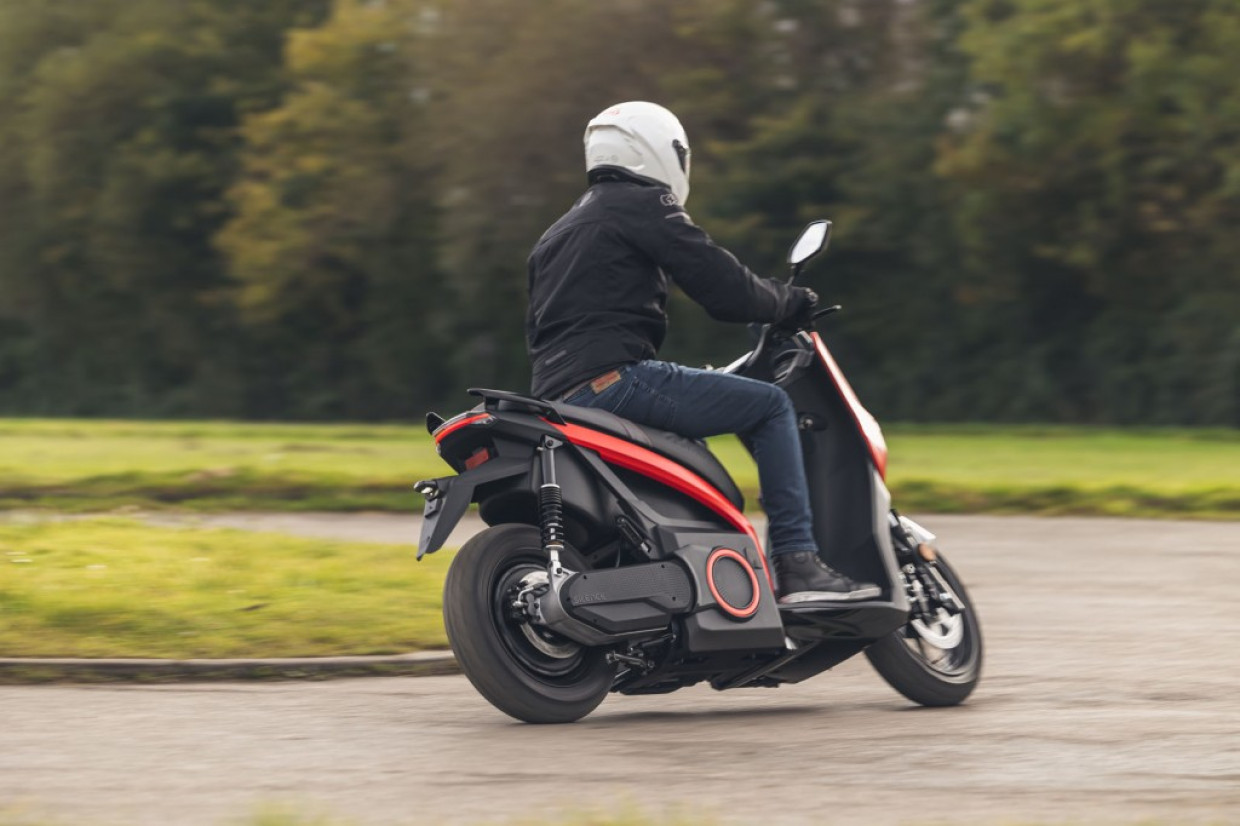
Zero-emission Powered Light Vehicles (PLVs) can help to decrease carbon emissions, reduce congestion and lower transport costs in the UK – if steps are taken to boost their use.
That’s the view of a new government and industry Action Plan that aims to “realise the full potential” of electric PLVs – which include two-, three- and light four-wheeled vehicles such as electric mopeds, small motorbikes and quadricycles.
The Action Plan was developed by the Motorcycle Industry Association (MCIA) and the not-for-profit transport decarbonisation specialist Zemo Partnership, as part of the UK Government’s wider Transport Decarbonisation Plan. The two bodies were tasked with how to enable PLVs to create new business and consumer opportunities.
What exactly are PLVs?
PLVs are classified as L category vehicles, and are small machines with two, three or four wheels that are smaller and lighter than cars (M category) and vans (N category). Think of electric mopeds, and more powerful cargo e-bikes - both of which have become hugely popular with food delivery riders.
PLVs are subdivided into seven groups based on power output, number of wheels, seat layout and weight. They are regulated by law, so all vehicles must comply with the relevant design and manufacturing rules - and users much has insurance and a relevant licence.
Because of their small size and light weight, PLVs are increasingly being fitted with zero emission powertrains, and MCIA and Zemo believe that allowed them to offer efficient, clean and practical transport for both personal and commercial uses.
The two groups believe that PLVs are ideal to replace cars and vans on some trips where walking, cycling or public transport is not a viable option. The MCIA and Zemo say that PLVs have a lower carbon impact to produce and run than electric cars, and can reduce transport by taking up less physical space on the road.
What does the Action Plan call for?
The report makes a series of recommendations, which are all designed to remove barriers to PLV usage and boot their usage among consumers and businesses.
They include a review of L-Category vehicle regulations, including the addition of a new entry-level category for a lower-powered light-electric moped with a maximum speed of 21.75mph. That is designed to match up with pedal-assisted e-bikes, which offer electric assistance up to 15.5mph but are capable of higher speeds with rider input. The Action Plan says that new class would further open up PLV usage.
The report highlights a need for a review of current government grants in the PLV sector, particularly looking to follow the success of the UK Plug In Car Grant for electric cares. That would be joined with a public awareness campaign to highlight the benefits of the machines
The Action Plan also calls for measures to develop the component and supply chains and manufacturing base for PLVs, and for such vehicles to be considered in the development of electric vehicle charging infrastructure. The report highlights examples such as British e-motorbike start-up Maeving (below), which received funding from Innovate UK.

The report’s authors also want a simplification of the licensing regime, measures to improve mobility through the use of PLVs in rural areas, and to work with local authorities to encourage PLVs.
Andy Eastlake, the CEO of the Zemo Partnership, said: “Road transport is one of the most challenging areas in terms of the achievement of net zero by 2050. Policymakers will need all the tools in the box to deliver this and ensuring every vehicle type can play its part is a critical step.
“Using the right vehicle for the right journey is a crucial element of the transition to zero emission mobility. PLVs open new opportunities to improve the efficiency with which we use road space, resources and energy, to cut greenhouse gas emissions and, potentially, also contribute to much needed improvements in urban air quality.”
READ MORE
e-CARS
The ten best-selling electric cars in the UK
e-BIKES
Cairn Cycles E-Adventure 1.0 e-bike review
Ten e-bikes we’re looking forward to in 2022
e-MOTORBIKES
Ten electric motorbikes to look forward to in 2022
Art, sustainability and choppers - the wonderful world of Stirling Eco
e-SCOOTERS
Hypercar firm Bugatti's first electric vehicle is an 18mph e-scooter
Ride-hailing firm Bolt set for UK expansion after big investment
e-WORLD
Veolia to open first UK plant for recycling EV batteries
The new Bobcat T7X is a truly groundbreaking electric digger
